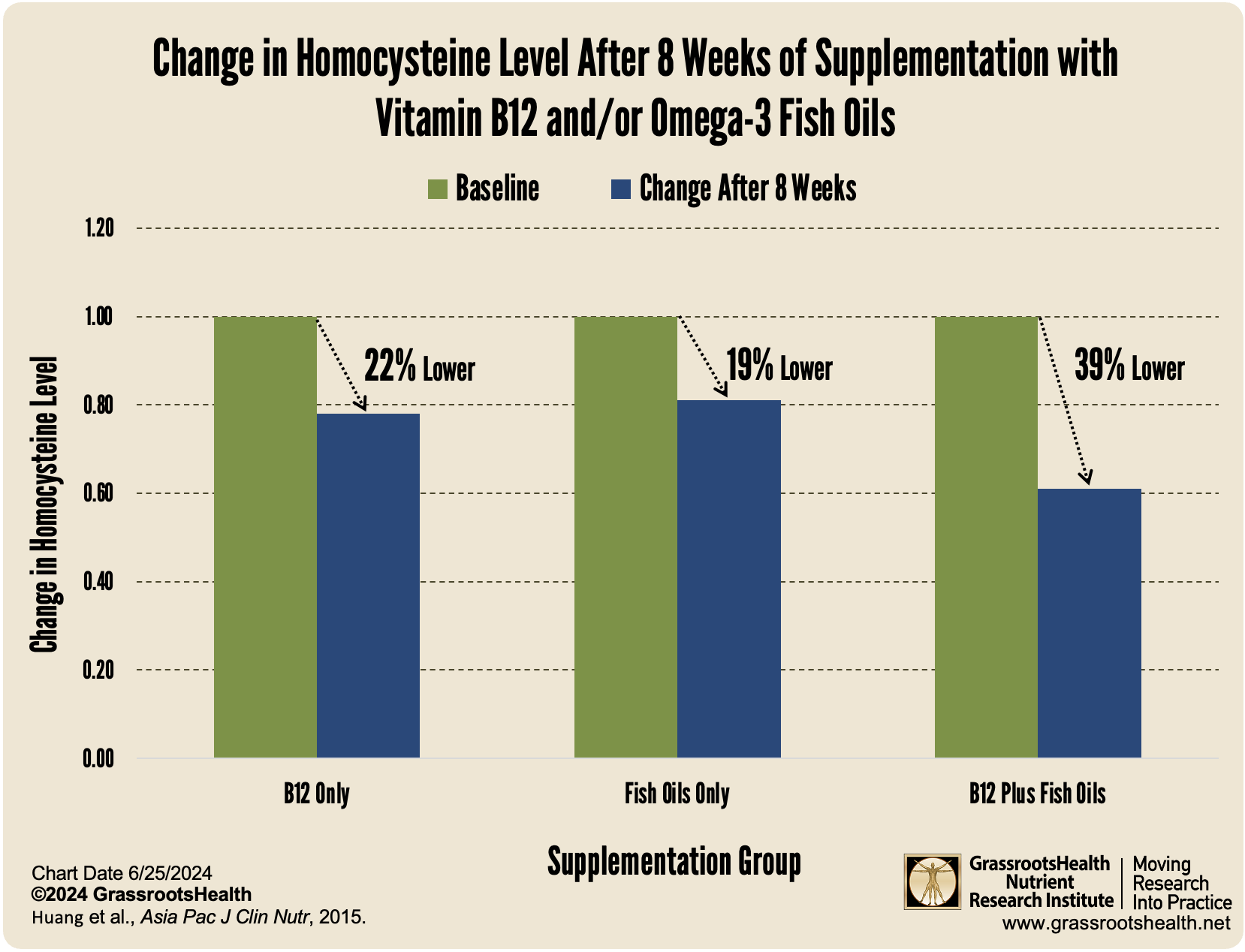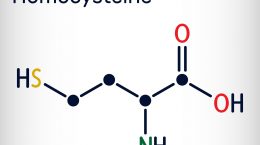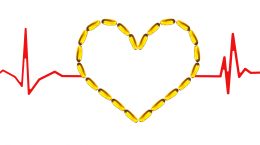Published on April 23, 2025
PLUS up to 20% OFF! This marker may be more important to manage than your weight, glucose, cholesterol, iron, and many other conventional health markers
Key Points
- High homocysteine is associated with an increased risk of over one hundred diseases, including accelerated brain shrinkage. Some experts consider this marker more important to know than your weight, glucose, cholesterol, iron, or many other markers, especially if you intend to become pregnant, are over 40, or have any memory, mental health, neurological or cardiovascular concerns.
- Homocysteine goes up when methylation is impaired, indicating a greater need for B vitamins, especially vitamins B6, B12 and folate; supplementing with folates and B vitamins alone has not always demonstrated benefit for lowering homocysteine levels and CVD risk, indicating the need for other factors – such as vitamin D and omega 3s
- While deficiencies in B6, B9 (folate), B12, vitamin D, and omega-3s are major contributors to high homocysteine levels, other hidden factors might be involved and must be addressed

Homocysteine is a toxic amino acid, produced in the body during the metabolism of methionine (an essential amino acid from protein). Normally, homocysteine is recycled or converted into other beneficial substances, a process that can be hindered due to sub-optimal B vitamin status and other factors, as described below.
High homocysteine is associated with an increased risk of over one hundred diseases, including accelerated brain shrinkage. Some experts consider this marker more important to know than your weight, glucose, cholesterol, iron, or many other markers, especially if you intend to become pregnant, are over 40, or have any memory, mental health, neurological or cardiovascular concerns.
What is a Good Homocysteine Level?
7 µmol/L or less is considered optimal. Supplementation with B vitamins along with additional interventions (outlined below) are recommended with levels above 10 µmol/L.
Health Effects of High Homocysteine
Homocysteine is a biomarker for over 100 diseases. According to published research,
- A homocysteine level above 11 µmol/L is associated with accelerated brain shrinkage
- In those with cardiovascular disease, having a homocysteine level above 20 µmol/L increases risk of death by almost five times, and every 5-point increase increases risk by a third
- A recent report of almost three thousand cardiovascular patients found that risk of death was almost three times higher for those with homocysteine levels above 15.6 µmol/L compared with those with levels below 9.8 µmol/L
An elevated level is also a red flag for health issues such as
 Vascular Damage: High homocysteine can harm blood vessels, increasing risk for:
Vascular Damage: High homocysteine can harm blood vessels, increasing risk for:
- Heart attack
- Stroke
- Blood clots
 Decreased Brain & Cognitive Health: It’s linked to:
Decreased Brain & Cognitive Health: It’s linked to:
- Brain atrophy
- Dementia and Alzheimer’s disease
- Depression
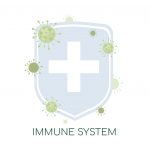 Inflammation: It contributes to chronic inflammation, worsening conditions such as:
Inflammation: It contributes to chronic inflammation, worsening conditions such as:
- Diabetes
- Osteoporosis
- Autoimmune diseases
“As a cardiologist, I have discovered that homocysteine testing is often neglected in the workup for thrombophilia and reminded that even 40 years ago, we were taught in med school it was a risk factor for vascular diseases. I was diagnosed with an elevated homocysteine level by a thorough hematologist as part of a workup for unprovoked DVT and Pulmonary emboli and have been on combination Folate/VitB-6/Vit B-12 ever since…” ~GrassrootsHealth Participant
Why is Measuring Your Homocysteine Level Important?
The homocysteine level is often used as a measure of methylation, or your need for B vitamins. Homocysteine goes up when methylation is impaired, indicating a greater need for B vitamins, especially vitamins B6, B12 and folate. Increased homocysteine levels can also be due to poor absorption of vitamin B12.
Faulty methylation damages the brain and circulation and can be considered the single best indicator of cognitive health. Addressing a high homocysteine level can greatly reduce the risk of the above diseases, and testing is essential for knowing what your homocysteine status is. Interestingly, supplementing with folates and B vitamins alone has not always demonstrated benefit for lowering homocysteine levels and CVD risk, indicating the need for other factors – such as vitamin D.
Low vitamin D levels can increase homocysteine levels.
Vitamin D is necessary to help with the expression of the enzymes that metabolize or break down homocysteine, and vitamin D deficiency can interfere with the breakdown of homocysteine, contributing to elevated levels and increasing the risk of resulting negative health effects. Studies show that as vitamin D levels increase, homocysteine levels decrease; one study found that those with vitamin D levels below 30 ng/ml had higher homocysteine levels. Learn more about these studies and the relationship between vitamin D, homocysteine, and diseases including cardiovascular and coronary artery disease, liver disease, and type 2 diabetes.
Getting higher amounts of omega-3s can lower homocysteine levels.
Since omega-3s also reduce inflammation and support vascular function, studies show a more significant benefit when both levels are optimized together. A randomized controlled trial demonstrated a synergistic effect of vitamin B12 and omega-3 fish oil supplementation on lowering homocysteine levels and CVD biomarkers, demonstrating how B vitamins and omega-3 fatty acids work synergistically to lower homocysteine and improve heart health.
Lowering homocysteine has also been shown to reduce brain shrinkage by up to 73% in those with adequate levels of the omega-3 fatty-acid DHA – another example of the synergistic effects of higher omega-3s and lower homocysteine in the brain.
Other Causes of High Homocysteine (Besides Nutrient Deficiencies)
While deficiencies in B6, B9 (folate), B12, vitamin D, and omega-3s are major contributors to high homocysteine levels, other hidden factors might be involved, such as:
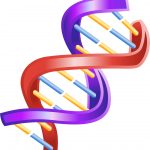 Genetics (MTHFR Mutation)
Genetics (MTHFR Mutation)
- Variants in the MTHFR gene affect how well your body converts folate into its active form (methylfolate).
- People with MTHFR variants may need methylated forms of B vitamins (especially methylfolate and methylcobalamin) to effectively lower homocysteine.
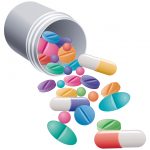 Medications
Medications
Some medications can interfere with homocysteine metabolism or deplete B vitamins, including:
- Metformin (often prescribed for diabetes)
- Methotrexate
- Anticonvulsants
- Some cholesterol-lowering drugs
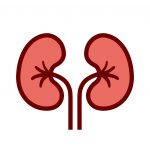 Kidney Dysfunction
Kidney Dysfunction
- The kidneys help clear homocysteine from the blood.
- If kidney function is compromised, homocysteine may stay elevated even if nutrient intake is optimal.
 Lifestyle Factors
Lifestyle Factors
- Smoking, excessive alcohol, poor diet, and chronic stress can all contribute.
- They create oxidative stress and inflammation, both of which impair homocysteine breakdown.
“I have several inflammatory conditions (asthma, rosacea, endometriosis) and want to keep tabs on my homocysteine level since I know that is linked to inflammation.” GrassrootsHealth Participant
How to Address High Homocysteine
Here are some tips for how to maintain a target homocysteine level of <10 μmol/L:
Take B Vitamins: These are the superstars of homocysteine metabolism (a deficiency in any of these can cause homocysteine to build up):
- Vitamin B6 (Pyridoxine) – Helps convert homocysteine into cysteine.
- Vitamin B9 (Folate) – Especially in its active form, methylfolate, it’s key to recycling homocysteine.
- Vitamin B12 (Cobalamin) – Partners with folate in the recycling process.
Check Omega-3 Fatty Acid Status: Aim for an Omega-3 Index of 8% or higher.
Ensure Optimal Vitamin D Levels: Optimizing your vitamin D level (40-60 ng/ml) can help regulate homocysteine levels.
Ways to Save When You Test Today!
20% Off the Cognitive Health Test Kit, measuring vitamin D, the Omega-3 Index, hsCRP and HbA1c
Have each of these measurements with your homocysteine level ready by Alzheimer’s Prevention Day for your Cognitive Health Test Score! (Sale ends 4/27/25)
Buy Your Cognitive Health Test Kit Here for 20% Off!
15% Off any test combination including vitamin D and omega-3s with Code Omega3s
Build or choose any kit combination that includes both vitamin D and omega-3s.
Save 15% with Code Omega3s
Home Blood Spot Testing for Homocysteine – Limited Kits Available!
This test is currently offered through Food for the Brain (FFB), another charity and friend of GrassrootsHealth.
Buy Your at-home Homocysteine Test from Food for the Brain Here – Stock is Limited
PLEASE NOTE This test requires a fasted blood sample. It is suggested that you perform the test first thing in the morning after 12 hours of fasting, i.e. no food or drinks. For more information read Food for the Brain’s homocysteine FAQs here. Email [email protected] with any questions you have about the test.
Why Might Homocysteine Stay High Despite the Above?
If you’re already taking sufficient B vitamins, omega-3s, and vitamin D but levels remain elevated, here are a few additional possible reasons:
You’re taking the wrong form of vitamins:
- Standard folic acid may not be well-utilized by those with MTHFR issues.
- Switch to methylfolate and methylcobalamin forms.
You’re not absorbing nutrients well:
- Digestive issues like low stomach acid or GI disorders (e.g. celiac, IBS) can reduce absorption of B12 and folate.
You’re not addressing inflammation or oxidative stress:
- Chronic inflammation may block the enzymes needed to clear homocysteine—even with adequate nutrients.
- Consider testing markers like CRP and incorporating antioxidants (like vitamin C, E, or magnesium-rich foods).
You’re missing important co-factors:
- Other nutrients like zinc, magnesium, and riboflavin (B2) support homocysteine metabolism too.
- These aren’t always included in standard B-complex supplements but may be the missing piece!
How Are Your Levels? Save When You Test Today!
Start by measuring your Vitamin D, Omega-3 Index, HbA1c for Blood Sugar Status, and hsCRP for Inflammation – Get 20% Off the Cognitive Health Test Kit for 2 weeks only! (Sale ends 4/27/25)
Buy Your Cognitive Health Test Kit Here for 20% Off!
15% Off any test combination including vitamin D and omega-3s
Order Here with Code Omega3s
Measure Homocysteine with the test kit from Food for the Brain – Limited number in stock!
Buy Your at-home Homocysteine Test from Food for the Brain Here


